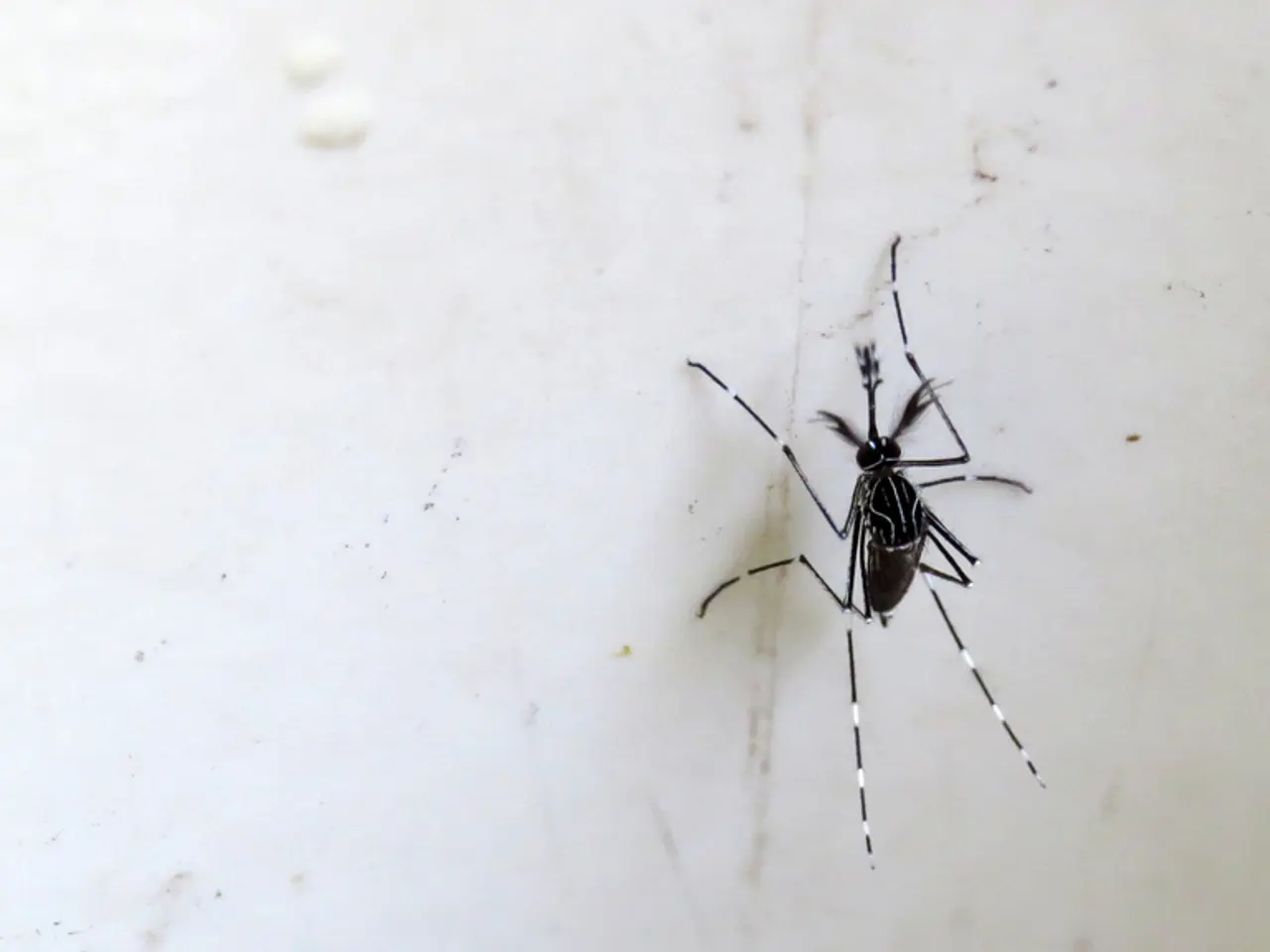Safeguard Your Home from Malaria in the Rainy Season: Sensible, Easy Strategies
Staying safe from malaria doesn't have to be complicated. With a few simple daily precautions, you can effectively shield yourself and your loved ones from this potentially dangerous disease.
Using mosquito repellents on exposed skin can provide additional protection against mosquito bites. It's particularly important to apply these repellents during the early mornings and evenings when mosquitoes are most active. Wearing full-sleeve shirts and long pants can help protect exposed skin from mosquito bites as well.
Covering up is just one part of the equation. Keeping your surroundings clean and removing or draining stagnant water sources like puddles, pots, or containers outside your home where mosquitoes breed is equally important. Using insecticides or mosquito coils indoors and ensuring that doors and windows have screens or nets also reduce mosquito entry.
Maintaining a strong immune system by eating a balanced diet, staying hydrated, and getting enough sleep complements these precautions. A healthy body is better equipped to fight off infections.
For those who prefer chemical-free options, natural alternatives like neem oil or camphor can be used. Light-colored clothing is recommended as it is less attractive to mosquitoes and also keeps the body cooler in humid weather. Regularly checking surroundings and eliminating standing water can further reduce the mosquito population.
An effective and affordable way to protect oneself from mosquito bites, especially for children and elderly individuals, is using a mosquito net while sleeping. Choosing a good-quality net and tucking it properly around the bed can significantly reduce the chances of being bitten. Mosquito nets act as a physical shield against mosquitoes, reducing direct contact and preventing bites during the night when the risk is highest.
Prevention helps save both health and money, and ensures families stay active, productive, and worry-free throughout the season. Timely steps to block these opportunities are key to a healthier home and community.
New research supports complementary approaches like ivermectin mass drug administration (MDA), which kills mosquitoes feeding on treated individuals and can reduce malaria transmission by about 26% on top of existing measures like bed nets. However, this is still under research and not yet a simple daily precaution for most individuals.
In summary, simple steps—bed nets, protective clothing, repellents, keeping environment clean of mosquito breeding sites, and good health habits—are proven and practical ways to prevent malaria daily. These combined with community-level interventions and evolving technologies help strengthen malaria control and prevention efforts worldwide. Malaria prevention is about creating a safe space for oneself and loved ones by being aware and proactive.
- Staying informed about science and advancements in medical-conditions like malaria can help us make better decisions for health-and-wellness.
- Workplace-wellness initiatives often include education about fitness-and-exercise, climate-change, and mental-health, promoting a holistic approach to overall wellness.
- Skin-care is important for maintaining a clear and healthy complexion, and is often linked to environmental-science.
- Therapies-and-treatments, such as meditation and counseling, are commonly used to address a range of mental-health issues.
- Nutrition plays a crucial role in overall health and wellness, and a balanced diet is essential for a healthy body.
- CBD oil, derived from the cannabis plant, is used by some as a natural remedy for various medical-conditions, including anxiety and chronic pain.
- Understanding environmental-science is key to addressing climate-change and finding sustainable solutions.
- Finance is a critical aspect of personal-finance and home-improvement, and budgeting is essential for responsible spending.
- Interior-design can greatly impact the mood and energy of a space, and is often influenced by trends in lifestyle, outdoor-living, and food-and-drink.
- Cooking and recipes from various global-cuisines offer cultural experiences and the chance to try new foods.
- Smart-home-devices, such as thermostats and security systems, make modern living easier and more convenient.
- Lifestyle choices, such as exercise, diet, and stress management, can have a significant impact on mental-health.
- Outdoor-living spaces, like gardens and patios, provide opportunities for relaxation and enjoyment of nature.
- Food-and-drink, including organic, locally-sourced options, are a growing trend in sustainable-living.
- Family-dynamics and communication are important for building strong relationships.
- Home-and-garden care, including gardening and car-maintenance, is essential for maintaining a functional and comfortable living space.
- Business and finance are interconnected, and financial literacy is essential for success in entrepreneurship.
- Personal-finance management is crucial for achieving financial stability and security.
- Books, movies, and social-media offer endless entertainment and ways to connect with others.
- Cars and transportation are a significant aspect of daily life and can have a big impact on one's lifestyle and carbon footprint.
- Migration trends have a significant impact on global economies and cultural dynamics.
- Shopping, either in-store or online, is a common activity that can allow individuals to express their personal style.
- Taking care of pets is an important aspect of responsible pet ownership and can provide emotional support.
- Travel can broaden one's perspective, increase cultural awareness, and offer opportunities for adventure.
- Sustainable-living practices, such as recycling, composting, and using renewable energy sources, can help reduce one's environmental impact.
- Technology has revolutionized many industries, including health-and-wellness, finance, and entertainment, making information and services more accessible to people.
- Healthy-cooking and meal preparation are essential for maintaining a balanced diet and overall wellness, and there are countless resources available for learning new recipes and techniques.




